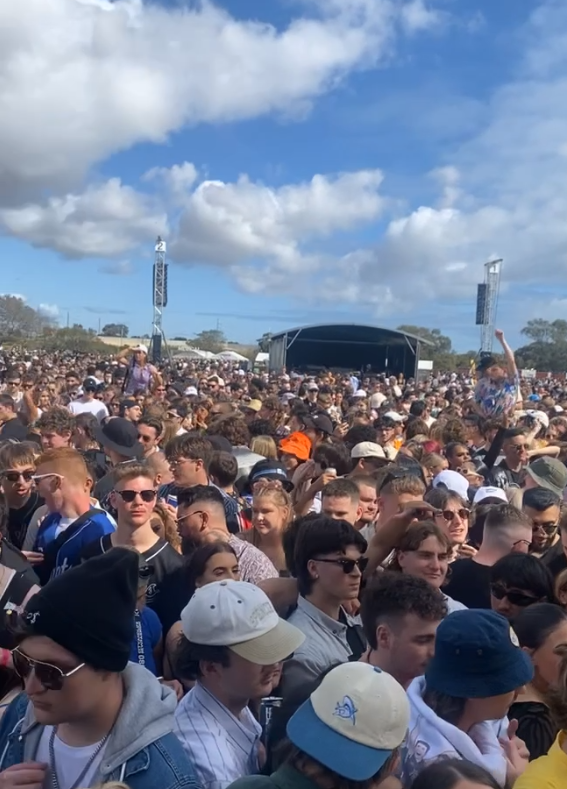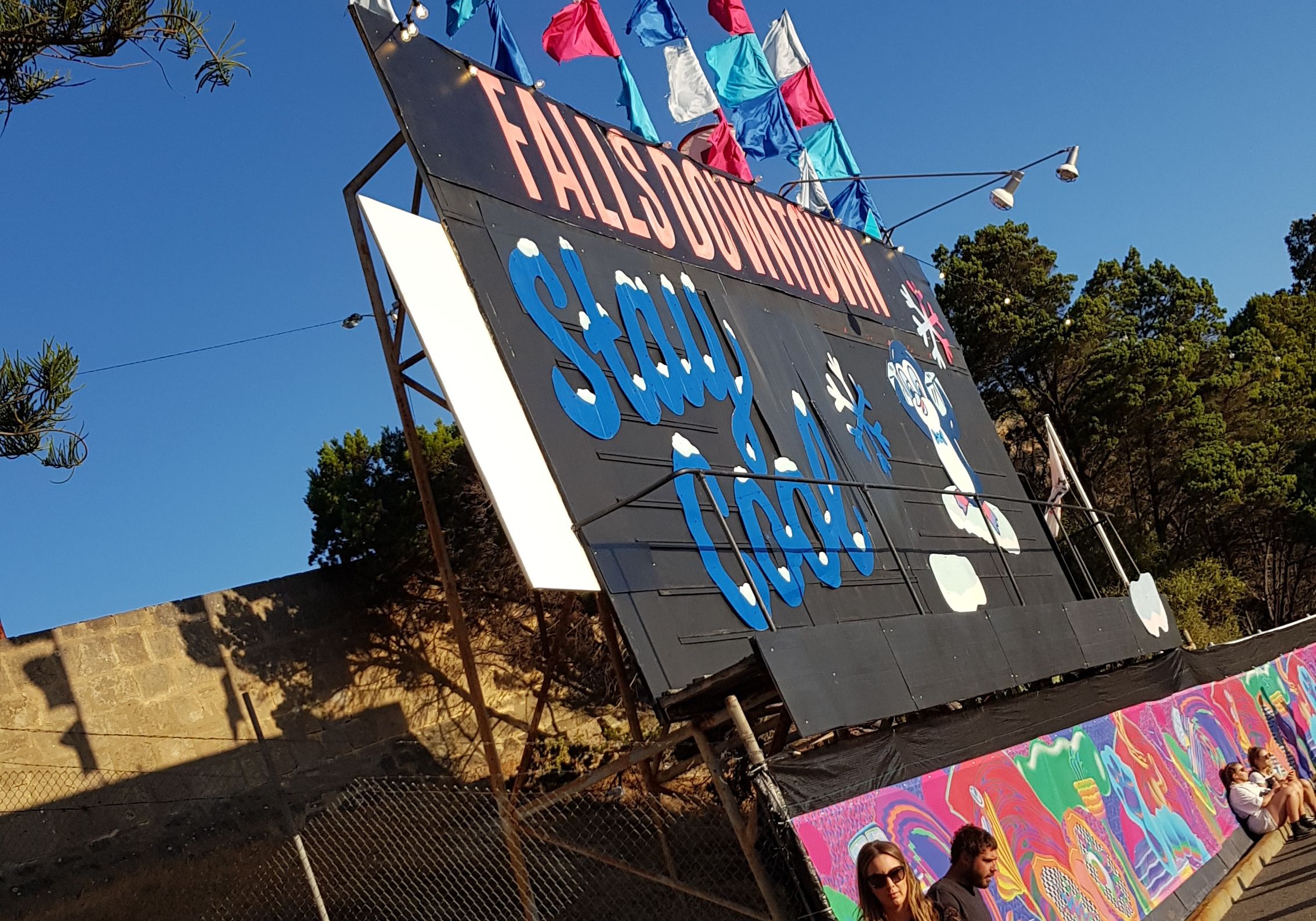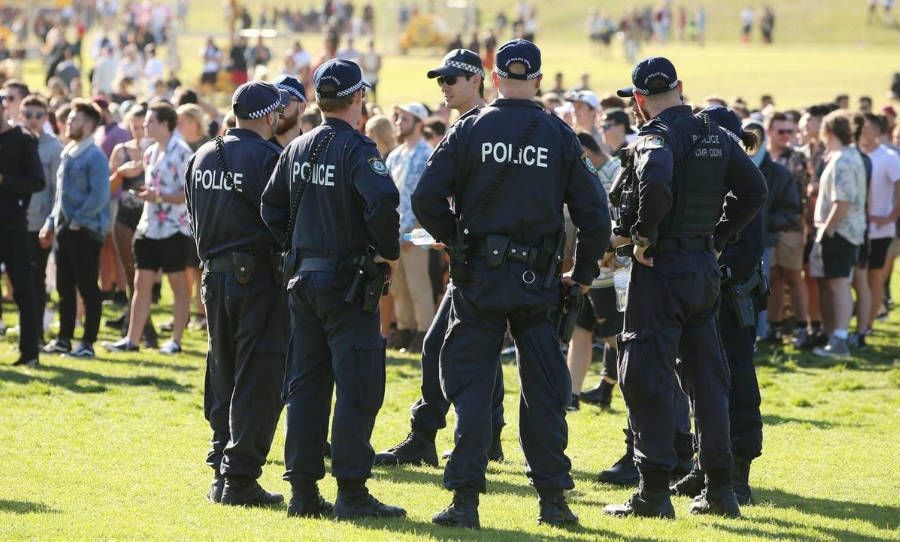Love and other drugs:
A look into the punitive practices at Australian festivals

The Australian music festival season has only just begun but with 18 drug overdoses already reported at New South Wales’ biggest festivals, questions are being raised about whether a “no tolerance” approach is saving or endangering young people.
A new report conducted by the National Drug Research Institutes research associate Dr Jodie Grigg found that current practices that try to stop patrons from taking drugs are ineffective and they are the cause for increased risk at these events.

MDMA increases risk of temperature related risks such as hypothermia being in crowds can exacerbate this Photo: Nathan-lee Abrahams
MDMA increases risk of temperature related risks such as hypothermia being in crowds can exacerbate this Photo: Nathan-lee Abrahams
Dr Griggs report recommended drug detection dogs and unlawful strip searches should be replaced with drug testing kits and the decriminalisation of the personal use of illicit drugs as well as the introduction of amnesty bins.
“These services provide an opportunity for young people to engage with health experts about harm reduction strategies,” she said.
The report found festival goers were more likely to panic consume their drugs or hide them internally police dogs were at the gate.
“We’ve seen many calls for policing practices relating to drugs to change, particularly at music festivals," she said.
“I do think it’s astonishing that these practices persist in spite of this.”
Dr Grigg said she believed education around taking drugs at festivals was a key component in reducing the risk of overdoes at festivals.
“Brief intervention or educational component is just as important as testing the actual pills,” she said.
Pill testing kits have been a hot topic for debate over the past couple of years with Australian National University Associate Professor in novel illicit drugs at the David Caldicott suggesting it should have been introduced in Australia “a decade ago”.
"The message that is being sent is that we care so little about our young people that we are unwilling to take steps to protect their lives," he said.
This issue around pill testing was exacerbated back in April when popular festival ‘Groovin the Moo’ pulled the testing kits due to the insurance company withdrawing.
This was seen as massive step back in harm minimisation and cast doubt on the legitimacy of pill testing at festivals.
Curtin University’s National Drug Research Institute director Simon Lenton said research conducted at WA music festivals found people would take drugs anyway, even if there were testing services available.
"Research shows pill testing reduces serious harm and the need for engagement with expensive emergency services,” Dr Lenton said.

The biggest talking point in the current conversation is the decriminalisation on the consumption of illicit drugs at festivals Photo by Petar Avramoski on Unsplash
Photo by Petar Avramoski on Unsplash

"There’s ample evidence to suggest that drug detection dogs are not effective ways of reducing drug consumption nor drug-related harms," Isabelle Volpe said. Photo: Nathan-lee Abrahams
"There’s ample evidence to suggest that drug detection dogs are not effective ways of reducing drug consumption nor drug-related harms," Isabelle Volpe said. Photo: Nathan-lee Abrahams
With the Australian Alcohol and Drug Foundation reporting that 52 per cent of festival goes used illicit drugs, University of New South Wales PhD candidate in the Drug Policy Modelling Program Isabelle Volpe believed this issue could be tackled better.
“Drug use has always happened at music festivals, and it always will, how can we make that space as ‘safe’ and devoid of serious harm for festivalgoers as possible?” she said.
Following ‘Splendour in the Grass’, Ms Volpe said strip searches were performed under the guise of ‘protecting’ people despite patrons complaining searches were distressing.
“There is ample evidence to suggest that drug detection dogs and strip searches currently conducted in NSW cause significant harm and can even lead to riskier drug use practices," she said.
“If we can frame safety in that way, we can open up much more productive conversations than if we choose denial.”
The use of police dogs and strip searches were put into the spotlight back in July with ‘Splendour in the Grass’ following numerous reports that these practices were intimidating patrons.
NSW Police Minister Paul Toole was unwavering in his belief of the current practices stating, "there is no safe way to take drugs."
"I wholeheartedly back the work of the NSW Police Force trying to stop people supplying and taking illegal drugs before it is too late. That includes the use of drug detection dogs," he said.
“Families and communities are living with the consequences of people thinking there is a safe way to take illegal drugs."

Many festivals are calling for drug testing kits to help create a safer environment for their patrons Photo: Nathan-lee Abrahams
Many festivals are calling for drug testing kits to help create a safer environment for their patrons Photo: Nathan-lee Abrahams
Festival goers, however, shared the sentiment that things need to change, and the approach currently used was not working.
Mary* and James*, a couple who attended ‘Listen Out’ in Perth and did not want to be identified, admitted they took party drugs at festivals to have a good time.
“We only take drugs to have a good time, it is not like we are dealing,” James said.
The pair believed police were targeting the wrong people at these events and suggested that police accept “[patrons] were going to take drugs anyway” and provide a safe environment for them to do so.
“We’re not hurting anyone, and it is intimidating when you are lining up and police are walking around sizing everyone up,” Mary said.
“It is very stressful, and I get why people just take them at the first sign of dogs,” James said.

Academics all over the country are calling for changes to the current policing practices at festivals Photo: Sam Ruttyn
Academics all over the country are calling for changes to the current policing practices at festivals Photo: Sam Ruttyn
The Australian Festival Association have also been working to provide a safe space for patrons by working closely with the government and police to improve policing practices at festivals.
The AFA co-chaired a legislated roundtable with Government and Industry Music Festival representatives and have four of the 10 Industry seats at that table.
“The AFA is constantly trying to make sure that we are implementing the best possible practices around this issue,” a spokesperson said.
The AFA received funding from NSW Health to develop Harm Minimisation Training programs for festival staff that teaches them to recgonise the signs of distress and overdose of MDMA to ensure that the proper medical attention is given.
